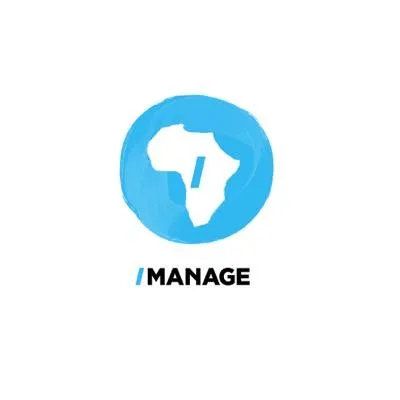Nigerian Cinema Hits Record-High ₦7 Billion in Ticket Sales with Barely 300 Screens Nationwide
To contextualize this disparity in infrastructure, France, with a population of 68 million, opened 115 new screens in 2022 alone — compared to Nigeria's 200+ million population.

Closing out the past year with a local film [A Tribe of Judah] grossing one billion naira for the first time ever, Nigerian cinema is seeing more of that momentum in 2024. By the end of September (Q3 2024), ticket sales had already smashed through the ₦7 billion mark, with over 1.7 million moviegoers flocking to theatres nationwide. For context, Nigeria’s total box office revenue in 2023 was ₦7.2 billion, meaning 2024 has already almost matched that—and we still have a couple more months to go.
This speaks volumes about Nollywood’s rise, where local stories are staking their claim in a big way. A Tribe of Judah reportedly raked in over ₦610 million this year alone, after making history as the first Nollywood film to hit N1 billion at the box office, cementing its status as the highest-grossing Nollywood movie of all time. Hollywood also did its thing, with films like HellBoy and Hounds of War contributing ₦20 million and ₦11 million, respectively, to Nigeria’s box office earnings. 😔
Films like Queen Lateefah and Farmer’s Bride posted impressive opening weekends, pulling in ₦58 million and ₦37.3 million, while indigenous heavy-hitters like Ajosepo, Lakatabu, and Beast of Two Worlds brought in over ₦200 million.
These Q1-Q3 2024 numbers mark the highest [on record] in Nigeria’s box-office history, and Q4 (fourth quarter) promises even more with highly anticipated releases like Omoni Oboli’s The Uprising: Wives on Strike 3 in October, Basketmouth’s A Ghetto Love Story in November, and December’s big hitters, Funke Akindele’s Everybody Loves Jenifa and AY’s The Waiter. All of these are projected to push 2024's box office beyond ₦10 billion.
As of 2023, Nigeria had only about 251 cinema screens for a population of over 200+ million, with the average theatre housing just six screens—some even have fewer.
What we’re witnessing isn’t just a reflection of the audience's growing appetite for films; it signifies the maturity of Nollywood. With well-channeled investments, Nigeria’s film industry has the potential to become a formidable force. In my TechCabal dispatch ahead of Moonshot, Chin Okeke of Misan Partners made a point that really resonates: Nollywood’s growth should be more than making more films— but also about expanding the infrastructure that supports them. In his words, “The game isn’t just to make more films; it’s also about expanding from 300 screens to 3,000 to make content more accessible for our people and meet local demand.”
Patrick Lee Cean, a member of the Cinema Exhibition Association, paints a vivid picture of the reality of Nigerian cinema. As of 2023, Nigeria had only about 251 screens for a population of over 200+ million, with the average theater housing just six screens—some even have fewer. Lagos, with its population of 16.5 million, accounts for 41% of those screens, leaving the rest 91.75% of Nigeria's population tugging for access to the 59% crumbs. Personally, I remember a friend in Port Harcourt sharing how far he has to travel just to watch a film at the cinema. He often has to make all sorts of mental calculations to ensure he gets the timing right — else he misses it and it has to be another day or eventually never. Just like that, Nigerian cinema loses money, and when you consider how many others face the same challenge, the losses multiply.
“We have lost some of our customers who wanted to see other movies apart from the blockbusters.”
This situation worsens during the holiday season when multiple blockbuster films with lengthy runtimes occupy most screens. Consequently, other movies are often rescheduled to inconvenient times, leading to a loss of customers who want to see alternatives to the blockbusters. As Patrick admits, “We have lost some of our customers who wanted to see other movies apart from the blockbusters.”
To contextualize this disparity in infrastructure, France, with a population of 68 million, opened 115 new screens in 2022 alone. Patrick also noted the loss of existing screens and the difficulty of replacing them due to the unfavorable naira-dollar exchange rate, while calling on the urgent need for government intervention.
So, while the projected ticket sales revenue of ₦10 billion is great for Nigerian cinema, one has to wonder: What happens when we have more screens and cinemas across more states—and even more in Lagos? You do the math!
For context, I believe this box office revenue is generated entirely within Nigeria—by Nigerians alone. Compare that to the Nigerian music industry, which earned ₦25 billion both locally and internationally on Spotify in 2023. You can see the clear potential for internal revenue generation in Film, despite these roadblocks. In Chin’s words, “Most of that revenue [coming] from local audiences, is proof that local markets can drive substantial revenue when given the right infrastructure”.
On a SEEMINGLY positive note, the federal government recently approved a licensing waiver for investors looking to establish cottage or community cinemas in Nigeria. This is in line with the agenda of Minister of Arts, Culture, and Creative Economy, Hanatu Musawa, aimed at providing incentives to encourage investment in the creative industry.
Hands akimbo to see how this unfolds, as you’d agree: it’s not just about boosting box office numbers; it’s also about creating jobs, stimulating the economy, and encouraging cinema culture among Nigerians.








